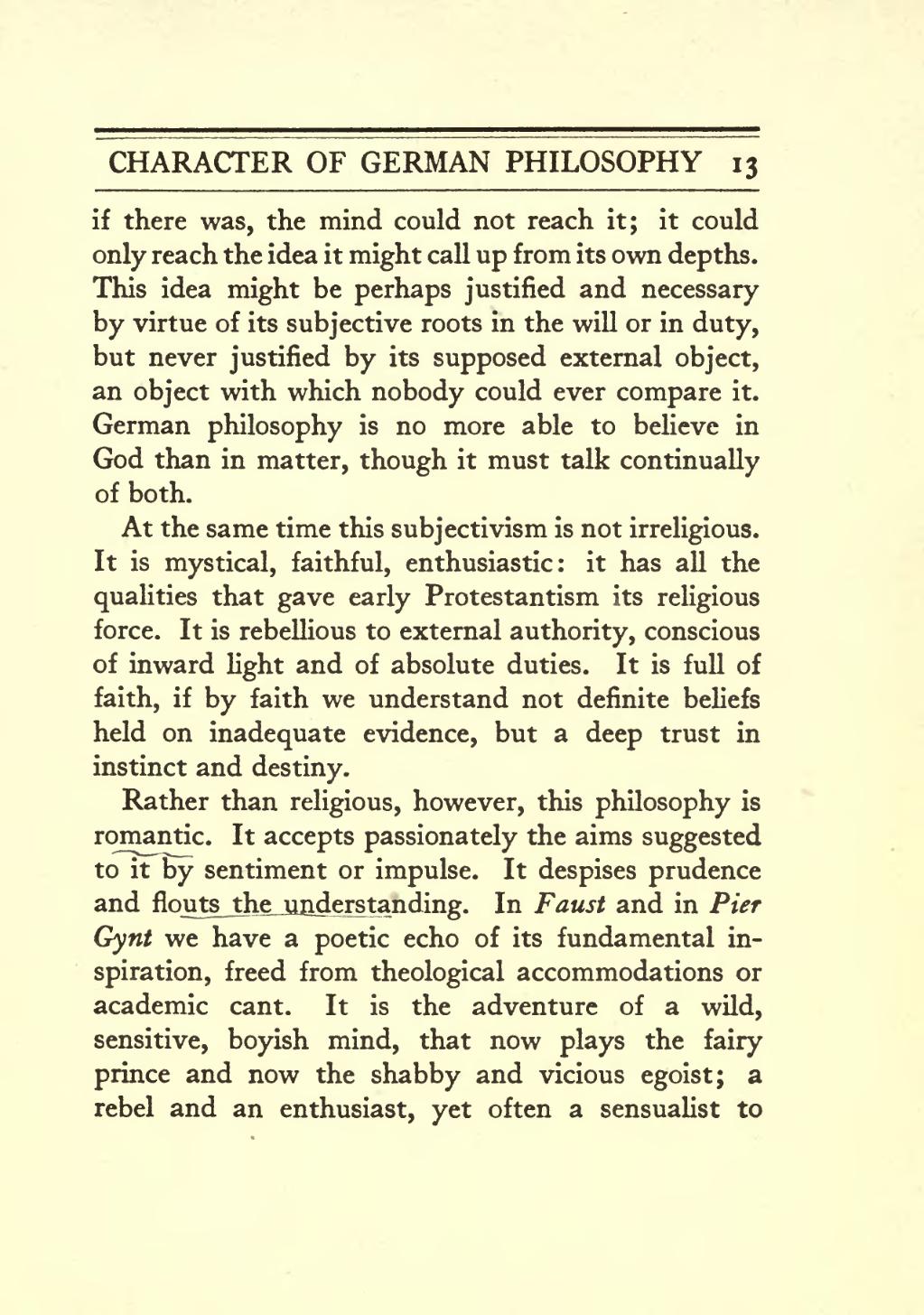if there was, the mind could not reach it; it could only reach the idea it might call up from its own depths. This idea might be perhaps justified and necessary by virtue of its subjective roots in the will or in duty, but never justified by its supposed external object, an object with which nobody could ever compare it. German philosophy is no more able to believe in God than in matter, though it must talk continually of both.
At the same time this subjectivism is not irreligious. It is mystical, faithful, enthusiastic: it has all the qualities that gave early Protestantism its religious force. It is rebellious to external authority, conscious of inward light and of absolute duties. It is full of faith, if by faith we understand not definite beliefs held on inadequate evidence, but a deep trust in instinct and destiny.
Rather than religious, however, this philosophy is romantic. It accepts passionately the aims suggested to it by sentiment or impulse. It despises prudence and flouts the understanding. In Faust and in Pier Gynt we have a poetic echo of its fundamental inspiration, freed from theological accommodations or academic cant. It is the adventure of a wild, sensitive, boyish mind, that now plays the fairy prince and now the shabby and vicious egoist; a rebel and an enthusiast, yet often a sensualist to
